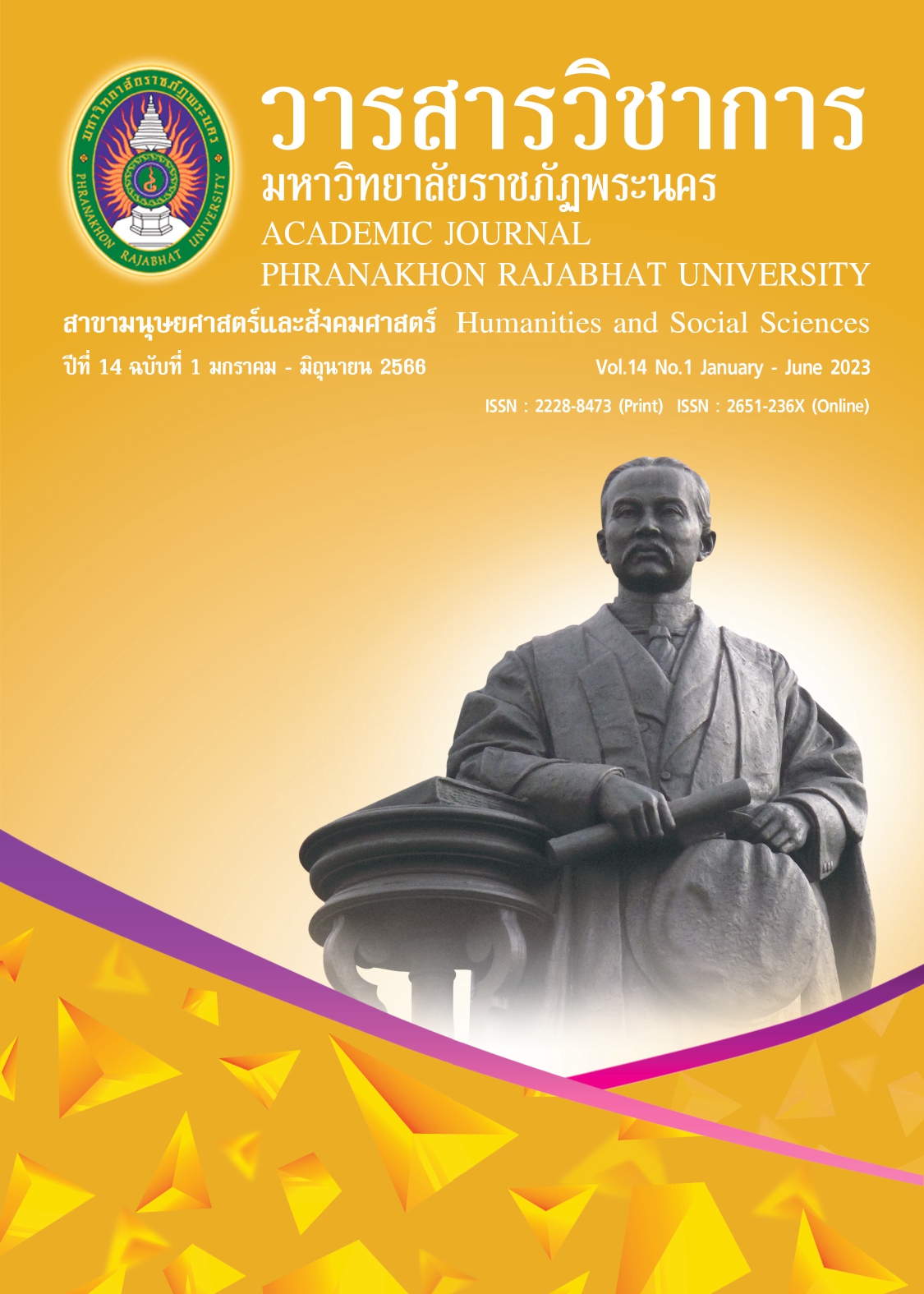DESIRABLE CHARACTERISTICS OF THE HEADS OF PRESCHOOL CHILD DEVELOPMENT CENTERS UNDER BANGKOK METROPOLITAN ADMINISTRATION
Keywords:
Desirable Characteristics, Head of Preschool Child Development Center, Need IndexAbstract
The purposes of this research were to: 1) study the current situation and the expected state of the heads of preschool child development centers’ desirable characteristics under Bangkok Metropolitan Administration, 2) develop the head of preschool child development centers’ desirable characteristics, and 3) present model on desirable characteristics of the heads of preschool child development centers. This research employed the mixed method research model. The 297 samples in this research were heads, deputy heads, assistant heads, and volunteer teacher nannies of the preschool child development centers located in Bangkok. The samples were selected based on Taro Yamane's ready-made table. The tools used in the study were a questionnaire, an in-depth interview, and group discussions. Statistics used for data analysis were frequency and percentage, whereas reference statistics were average, standard deviation, alpha coefficient of Cronbach, and the need Index.
The results showed that: 1) he current situation and the expected state of the heads of preschool child development centers’ desirable characteristics were cognitive problems, safety, social attributes, personality, social background, physical aspect, and work-related attributes respectively. 2) The head of preschool child development centers’ desirable characteristics were found that all 7 attributes had the expected average total (I) of 4.68, higher than the average total of current condition (D) 4.22, ie 0.46, and had a total priority need index of 0.108 (PNImodified = 0.108), and 3) The desirable characteristics of the heads of preschool child development centers were LIVE model, namely Leadership, Insight, Virtue, and Evaluation.
References
Jerajaturapornkul, P. (2017). Guidelines for Education Development in Early
Childhood Level of Child Development Center attach to Chiang Dao Sub – District Administration Organization to the Standards of the National Child. Master of Educational Administration Graduate Chaimai Rajabhat University. (In Thai)
Khemmani, T. (2017). The Science of Teaching Knowledge for Organizing an
Effective Learning Process. Bangkok: Chulalongkorn University. (In Thai)
Namcharoen, J. and Manoonsilp, A. (2019). Early Childhood Teachers and
Child Development According to the King’s Philosophy, Valaya Alongkorn
Journal (Humanities and Social Science), 9(3), 211-221. (In Thai)
Ministry of Education. (2018). Educational management of the Child Development
Center. Bangkok : Ministry of Education. (In Thai)
Musaazi, J. C. S. (1982). The theory and practice of educational administration.
Macmillan Nigeria Publishers, Limited.
Oplinger, J., Lande, M., Jordan, S., & Camarena, L. (2016). Making leaders:
Leadership characteristics of makers and engineers in the maker community.
American Journal of Engineering Education (AJEE), 7(2), 65-82.
Pliksawan, P. (2020). A confirmatory component analysis of the desirable
characteristics of early childhood teachers. Journal of MCU Nakhondhat,
(5), 96-111. (In Thai)
Phonsom, W. (2017). Desirable Characteristics of School Administrators According
to Teachers' Attitude School Network for Educational Quality Development 1, under the Office of Educational Service Area Nakhon Ratchasima Primary Education Area 7. Bangkok: North Bangkok University.
Sribunruang, N. (2013). Characteristics of administrators of child development centers under sub-district administrative organizations, PhetchabunRajabhat Journal, 15(2), 41-48. (In Thai)
Stogdill, R. M. (1950). Leadership, membership and organization. Psychological
Bulletin, 47(1), 1–14.
Stadt, R. W., & Kenneke, L. J. (1970). Teacher Competencies for the Cybernated Age.
London: Cambridge University Press.
Sudararat, S. (2023). A Study of needs for improvement of excellence
administration of private school administrators of Samut Sakhon provincial. Academic Journal Phranakhon Rajabhat University (Humanities and Social Sciences), 14(1), 32-48. (In Thai)
Trewatha, R.L. & Newport, M.G. (2012). Management functions and behaviour.
Dallas: Business publications. (In Thai)
Thai government gazette. (2562). Early Childhood Development Act B.E. 2562. Page
Volume 136. Section .56. ก 30 April 2019. (In Thai)
Yamane, T. (1973). Statistics: an introduction analysis. New York : Harper & Row.
Yukl, G., & Michel, J. W. (2006). Proactive influence tactics and leader member exchange. Journal of Power and influence in organizations, 5(2), 87-103.
Downloads
Published
How to Cite
Issue
Section
License
Copyright (c) 2023 Academic Journal Phranakhon Rajabhat University

This work is licensed under a Creative Commons Attribution-NonCommercial-NoDerivatives 4.0 International License.
"บทความวิชาการในวารสารฉบับนี้ ถือเป็นความรับผิดชอบของผู้เขียนเท่านั้น"
สงวนลิขสิทธิ์ตามพระราชบัญญัติลิขสิทธิ์




